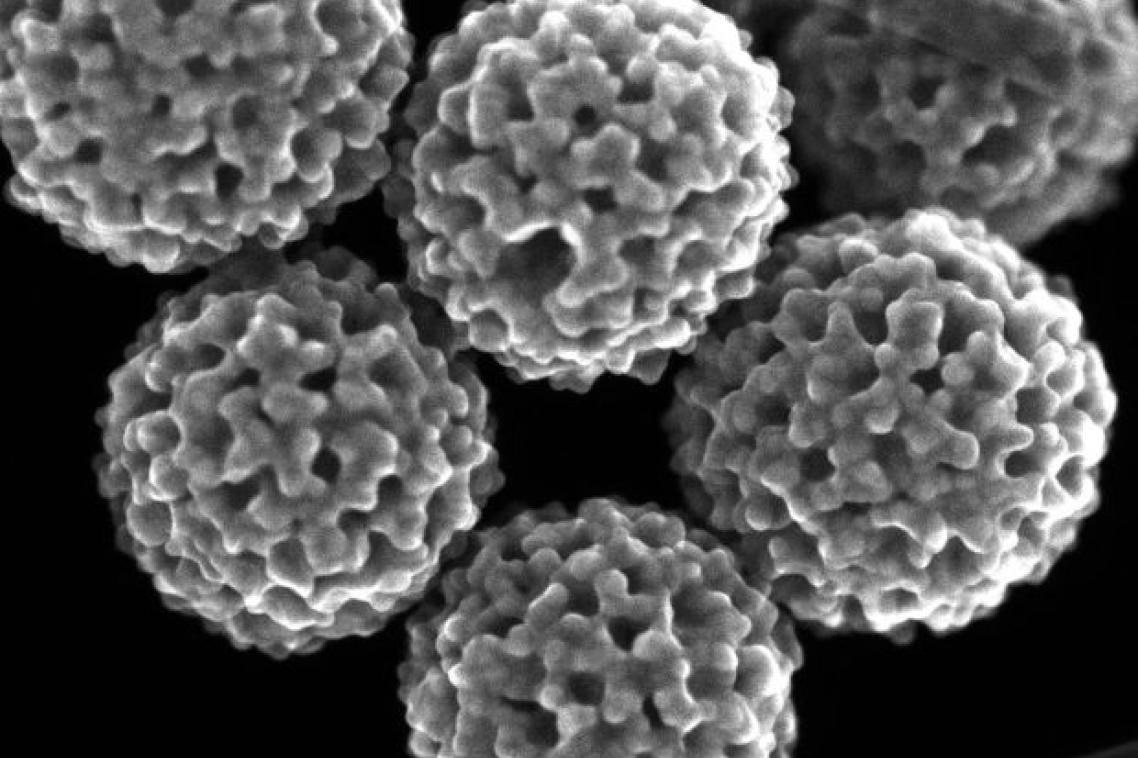Researchers at The University of Queensland have developed gold nanoparticles capable of highlighting faint cancer markers in non-invasive samples like urine, saliva, or blood.
 Mesoporous gold nanoparticles can be used to highlight faint ovarian cancer markers in samples like urine, saliva, or blood. Image Credit: The University of Queensland
Mesoporous gold nanoparticles can be used to highlight faint ovarian cancer markers in samples like urine, saliva, or blood. Image Credit: The University of Queensland
The findings, published in Small, suggest the technology could help triage women with suspected ovarian cancer more accurately than current diagnostic methods. Sponge-like gold particles may offer a more accurate way to triage women with suspected ovarian cancer, outperforming current diagnostic tools.
Ovarian cancer is one of the deadliest cancers affecting women, in part because it rarely shows clear symptoms at earlier, treatable stages, and it is difficult to diagnose.
Current approaches make it difficult to accurately triage and identify women with ovarian cancer compared to those with benign conditions, often requiring painful and invasive procedures such as tissue biopsy. To me, this creates an unacceptable situation for women. At present, there is no effective and accessible test to accurately identify ovarian cancer and prevent women from undergoing unnecessary procedures.
Javeria Bashir, Ph.D. Student, University of Queensland
Gold-Enhanced Light Sensors
Working under the guidance of experts from UQ’s School of Mechanical and Mining Engineering, and in partnership with the Australian Institute for Bioengineering and Nanotechnology (AIBN), the UQ Centre for Clinical Research (UQCCR), and the UQ Centre for Extracellular Vesicle Nanomedicine, Ms. Bashir focused on improving biosensing technologies in cancer diagnostics through these sponge-like mesoporous gold nanoparticles.
By applying a technique called Surface Enhanced Raman Scattering (SERS), the nanoparticles amplify light signals, creating hotspots that make even the faintest traces of cancer biomarkers detectable.
SERS platforms are already highly sensitive and can detect biomarkers at the nanoscale. Using mesoporous gold nanoparticles increased that sensitivity even further compared to nonporous, or commercially available nanoparticles. Essentially, the gold particles act like tiny light amplifiers, creating hotspots that reveal even the faintest traces of cancer.
Javeria Bashir, Ph.D. Student, University of Queensland
The diagnostic setup uses a small tube containing a patient's sample alongside a handheld Raman spectrophotometer. Early trials showed the platform outperformed current blood tests, achieving 82 % sensitivity in detecting ovarian cancer and 98 % specificity in ruling it out.
The technology's portability, simplicity, and affordability make it particularly beneficial for women in remote or under-resourced regions.
Devices like this are moving closer and closer to everyday use. This project demonstrates how mesoporous nanotechnologies can help us transform disease monitoring and pave the way for personalized treatment strategies.
Javeria Bashir, Ph.D. Student, University of Queensland
Journal Reference:
Bashir, J., et al. (2025) Plasmonic Mesoporous Gold-Based SERS Biosensor for Ovarian Cancer-Derived Extracellular Vesicles. Small. doi.org/10.1002/smll.202401817